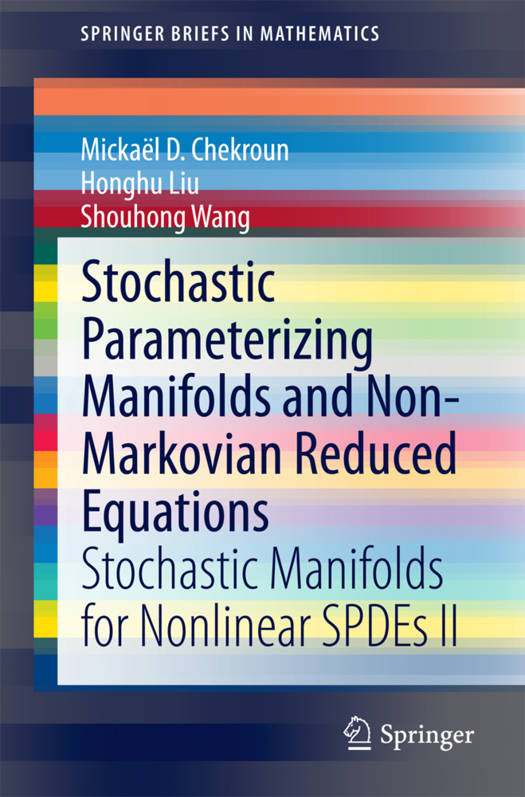
- Afhalen na 1 uur in een winkel met voorraad
- Gratis thuislevering in België vanaf € 30
- Ruim aanbod met 7 miljoen producten
- Afhalen na 1 uur in een winkel met voorraad
- Gratis thuislevering in België vanaf € 30
- Ruim aanbod met 7 miljoen producten
Zoeken
Stochastic Parameterizing Manifolds and Non-Markovian Reduced Equations
Stochastic Manifolds for Nonlinear Spdes II
Mickaël D Chekroun, Honghu Liu, Shouhong Wang
€ 52,95
+ 105 punten
Omschrijving
In this second volume, a general approach is developed to provide approximate parameterizations of the "small" scales by the "large" ones for a broad class of stochastic partial differential equations (SPDEs). This is accomplished via the concept of parameterizing manifolds (PMs), which are stochastic manifolds that improve, for a given realization of the noise, in mean square error the partial knowledge of the full SPDE solution when compared to its projection onto some resolved modes. Backward-forward systems are designed to give access to such PMs in practice. The key idea consists of representing the modes with high wave numbers as a pullback limit depending on the time-history of the modes with low wave numbers. Non-Markovian stochastic reduced systems are then derived based on such a PM approach. The reduced systems take the form of stochastic differential equations involving random coefficients that convey memory effects. The theory is illustrated on a stochastic Burgers-type equation.
Specificaties
Betrokkenen
- Auteur(s):
- Uitgeverij:
Inhoud
- Aantal bladzijden:
- 129
- Taal:
- Engels
- Reeks:
Eigenschappen
- Productcode (EAN):
- 9783319125190
- Verschijningsdatum:
- 14/01/2015
- Uitvoering:
- Paperback
- Formaat:
- Trade paperback (VS)
- Afmetingen:
- 156 mm x 234 mm
- Gewicht:
- 217 g

Alleen bij Standaard Boekhandel
+ 105 punten op je klantenkaart van Standaard Boekhandel
Beoordelingen
We publiceren alleen reviews die voldoen aan de voorwaarden voor reviews. Bekijk onze voorwaarden voor reviews.











